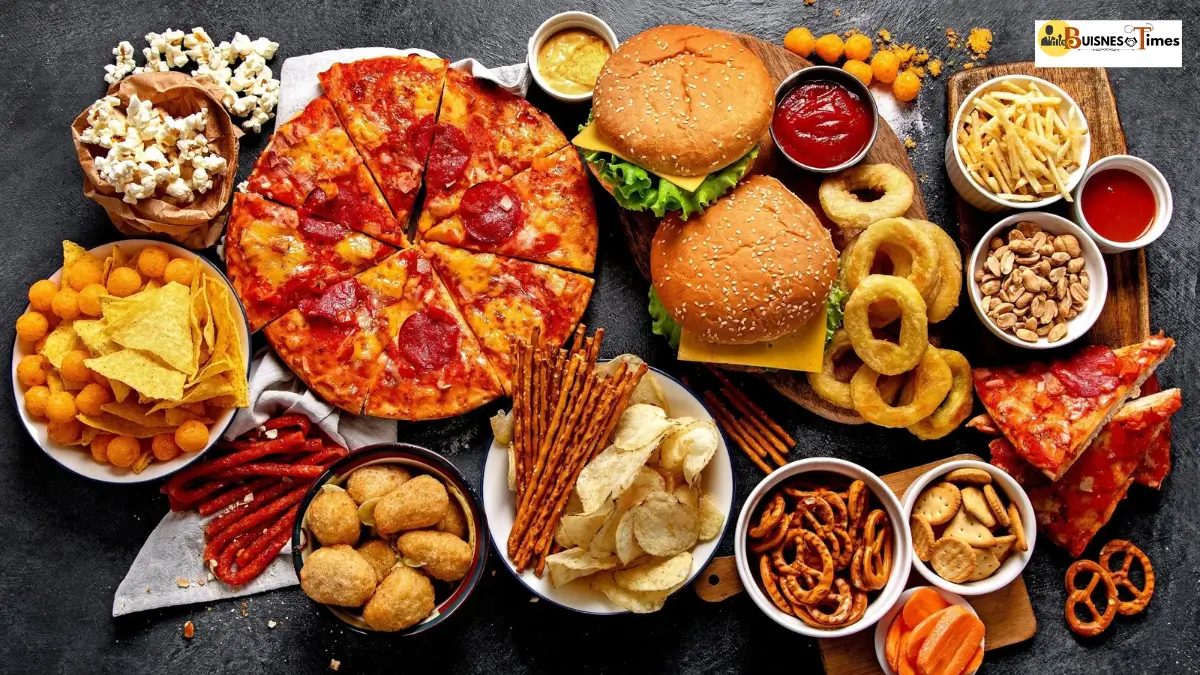In today’s fast-paced world, ultra-processed foods like instant noodles, packaged snacks, sugary cereals, and frozen ready-to-eat meals have become an easy option for many. However, a new international study warns that even consuming small amounts of these foods can have serious health consequences. Researchers found that diets rich in ultra-processed foods not only contribute to weight gain but also negatively impact male reproductive health, particularly sperm quality.
Also Read: Top 10 Superfoods for Weight Loss in 2025
The findings, published in the prestigious journal Cell Metabolism, underline the dangers of processed foods that go far beyond simple calorie counts. Even when calorie intake remained the same as that of a minimally processed diet, participants consuming ultra-processed meals showed adverse health outcomes.

What the Study Found
The research was carried out by a team of scientists led by Jessica Preston at the University of Copenhagen’s NNF Center for Basic Metabolic Research (CBMR). According to Preston, the results were clear: “Ultra-processed foods harm both reproductive and metabolic health, even if they’re not consumed in excess. It is not just the calorie count, but the processed nature of the food itself that makes it harmful.”
To get reliable results, the team designed a unique experiment that compared unprocessed and ultra-processed diets on the same group of individuals.
- 43 men aged 20–35 were recruited.
- Participants followed two different diets—an ultra-processed one and a minimally processed one—for three weeks each.
- There was a three-month “washout” period between the two phases to eliminate crossover effects.
- Some participants consumed a calorie-surplus diet (500 calories more daily), while others were given a diet matching their energy needs.
- Crucially, both diets had the same calorie, protein, carbohydrate, and fat composition—making processing the only key difference.
Despite the identical nutrition breakdown, the results painted a worrying picture.
Weight Gain Without Extra Calories
Participants on the ultra-processed diet gained around 1 kg more body fat compared to when they followed the unprocessed diet. This weight gain happened regardless of whether the participant was on a normal-calorie or high-calorie plan.
Researchers concluded that the way food is processed plays a bigger role than many realize. Additives, preservatives, and industrial cooking methods may alter the way the body metabolizes food, leading to increased fat storage and disrupted metabolic functions.
Hormonal Disruption and Male Fertility Risks
Beyond weight gain, the study revealed another critical health concern: declining male reproductive health.
- Men on the ultra-processed diet had higher levels of phthalates, specifically cxMINP, a chemical found in plastics that disrupts hormone balance.
- Testosterone levels dropped noticeably, as did follicle-stimulating hormone (FSH)—both essential for sperm production.
- The combination of reduced testosterone and FSH suggested a potential long-term impact on fertility.
Professor Romain Barrès, one of the co-authors, said: “We were shocked by how many body functions were disrupted by ultra-processed foods, even in healthy young men. The long-term implications are alarming and highlight the need to revise nutritional guidelines to better protect against chronic diseases.”
Other Health Concerns Beyond Fertility
The impact wasn’t limited to reproductive health. The study also found:
- Cardiovascular markers worsened, showing early signs of heart health decline.
- Participants experienced increased inflammation, which is linked to diabetes and obesity.
- The presence of chemical pollutants in food packaging and industrial processing raised concerns about toxic exposure through diet.
These findings suggest that ultra-processed diets don’t just lead to obesity but may also trigger a chain reaction of health risks—including heart disease, hormonal disorders, and reduced fertility.
Why Minimally Processed Foods Are Safer
The difference in outcomes, despite equal calorie intake, highlights that not all calories are equal. A bowl of freshly cooked rice and vegetables is vastly different from packaged instant noodles, even if both technically offer the same calories.

Minimally processed foods—such as fresh fruits, whole grains, nuts, lean meats, and vegetables—retain natural nutrients and fiber without harmful additives. They also lack industrial chemicals that can seep into packaged foods.
Experts now emphasize the importance of focusing not just on calories but on food quality and processing levels.
Growing Health Crisis
This study adds to the growing body of evidence linking ultra-processed foods with obesity, diabetes, heart disease, and now male infertility. With modern lifestyles driving people towards convenience-based diets, scientists warn of a looming public health crisis.
The message is clear: while packaged foods might save time, they come with hidden costs to long-term health. The researchers recommend that governments and health bodies revise nutrition guidelines to limit ultra-processed food consumption and promote whole, natural diets.

Key Takeaways
- Ultra-processed foods cause weight gain even without extra calories.
- Hormone-disrupting chemicals in processed foods affect male fertility.
- Testosterone and sperm health decline on processed diets.
- Cardiovascular health markers worsen with ultra-processed consumption.
- Minimally processed foods remain the safest choice for long-term health.
The study serves as a wake-up call for policymakers and individuals alike. If even young, healthy men can experience such dramatic health changes in just a few weeks, the long-term risks for the wider population could be severe. Shifting towards fresh, minimally processed foods might be the simplest yet most effective way to protect both physical health and reproductive well-being.
Disclaimer : This article is based on a published scientific study and is intended for informational purposes only. It should not be considered a substitute for professional medical advice. Always consult a healthcare provider before making significant dietary changes.

